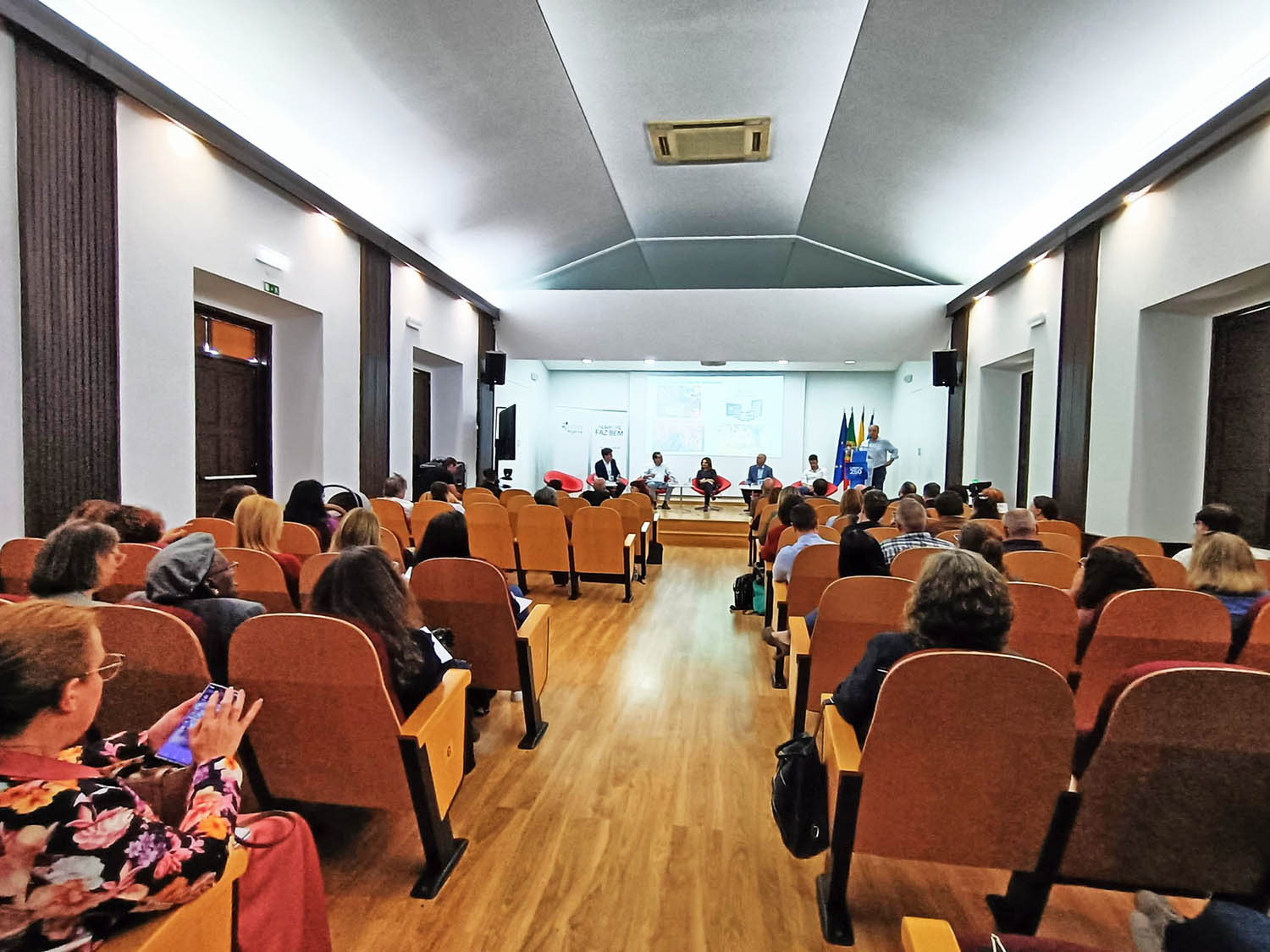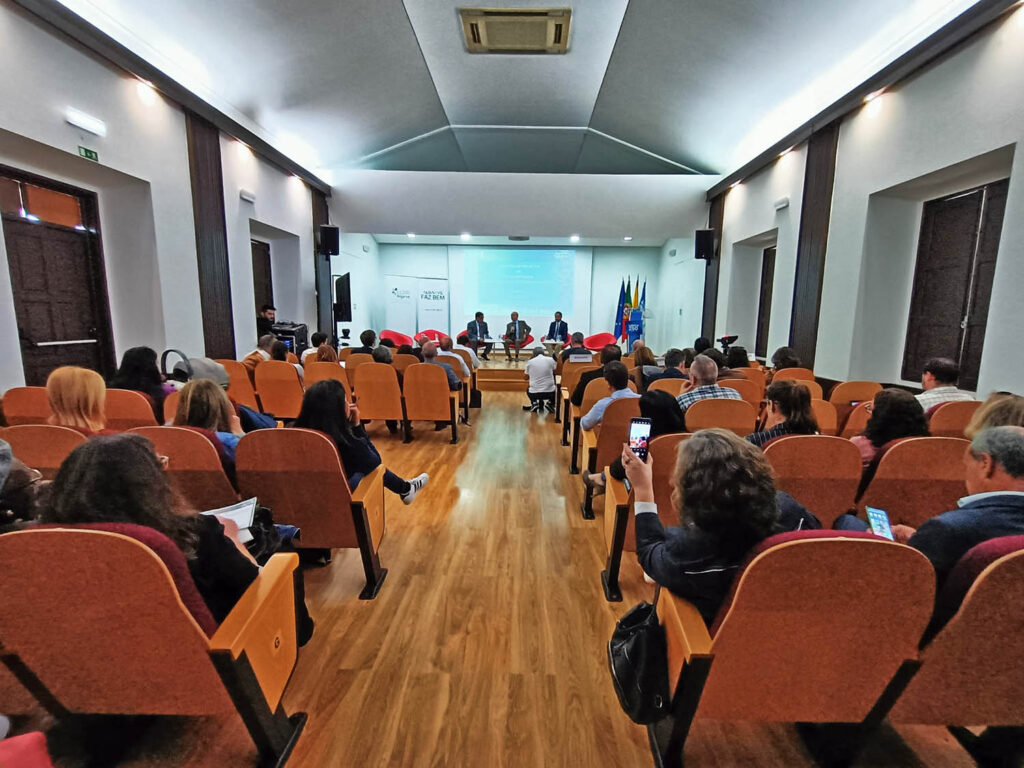The Algarve has 35 new Social Innovation projects approved, worth 9,4 million euros, revealed yesterday, in Lagoa, Filipe Almeida, president of the Portugal Social Innovation Mission Structure (EMPIS). Across the country, 644 projects are approved.
This official, who was speaking at the opening session of the 1st Exhibition of Social Innovation Projects in the Promotion of Educational Success, which took place this Wednesday afternoon in the auditorium of Convento de S. José, in Lagoa, added that the 35 projects in the Algarve The CRESC Algarve 2020 Operational Program supports the involvement and funding of all 16 municipalities in the region, with those that most invest in this area, in that order, «Loulé, Olhão, Albufeira, Castro Marim and Lagoa».
According to Filipe Almeida, Lagoa, host of the Mostra, is «at national level, the 36th municipality in terms of financing social innovation projects».
In fact, in the opening session, Luís Encarnação, mayor of Lagoa, highlighted the effort made in this area, in the municipality, in partnership between the Municipality, the School Groupings and other entities, such as IPSS and associations.
One of the projects he referred to is the "MyPolis – Citizenship 4.0 in Lagoa», a project by the association Discurso Paralelo, which created a platform mobile devices e websites to bring civic participation into the XNUMXst century, especially in the case of Millenials.
The mayor from Lagos also mentioned projects in the sports area, such as the High Performance Support Unit in Schools, the first to be created in the south of the Tagus, at Padre António Martins de Oliveira Secondary School. Today it has 70 students at Secundária de Lagoa and “about twenty” more at Escola do Parchal, associated with the project.
«In Lagoa, five or six years ago, we had serious problems with early school leaving», and a school «that was always at the bottom of the rankings». Furthermore, the best students in the municipality ended up «choosing schools in neighboring municipalities (Portimão and Silves)», which made the Secondary School in Lagoa «even less attractive».
Thanks to «team work», «today the problem that the mayor has is the opposite: the director of the School Grouping says that we don’t have any more classrooms, there’s no more room for students», stressed Luís Encarnação.
With all this, he added, «we went from a repulsive school to an attractive school».

José Apolinário, president of the Commission for the Coordination and Regional Development of the Algarve, again underlined the project that the objective that the Algarve region intends to achieve in the coming years. Currently, the Algarve has one of the highest early school leaving rates in the country (19%), as well as poor performances in a number of other education-related indicators. But, with the funds from Portugal 2030, there is “a contract for this early abandonment to remain at 5% at the end of 2029”.
Apolinário added that the Portugal 2030 agreement for the Algarve, with regard to Education, favors funds "focused on achieving these qualitative objectives", although there is still "funds for works in schools". «In Portugal 2030, we put the chips more on educational success and qualifications», he added, objectives that he considered «ambitious, but strategic».
«Lagoa has sought to mark its intervention agenda with projects in education and training», recalled the president of CCDR Algarve, which is why this entity, responsible for managing community funds in the region, chose the municipality for this 1st Exhibition.
Filipe Almeida, president of EMPIS, thanked the fact that social innovation projects in education were being shown in the municipality of Lagoa, outside the major centres, a way of «disquieting to look at problems from another angle».
Also citing some emblematic numbers, Filipe Almeida recalled that the dropout rate of students at the end of basic education is 6% in the Algarve, while the national average is 4.3%. But, he stressed, even at intra-regional level, there are marked differences: in Monchique this rate is 15%, in Lagoa it is 5%.
Speaking of the need to «attack the problem in a multilevel, multisectoral way», the president of EMPIS underlined that one of the ways is precisely social innovation. But, he underlined, it is necessary to «create mechanisms so that social innovation projects do not remain closed in the microcosm where they were created, but can expand».
That was precisely the objective of the 1st Mostra, which included the presentation of eight projects from across the country, namely from the Algarve, which use social innovation to promote educational success.
One of the projects is from the Algarve: “Milage Aprendir +”. Developed by the University of Algarve, “Milage Aprendiz +” is a digital educational platform that aims to implement an innovative pedagogical practice, using mobile technologies, in a hybrid model of learning, which combines analogue and digital.
Mauro Figueiredo, professor at UAlg and one of the parents From this platform, he said that Milage «started with the teaching of Mathematics, but extended to all subjects up to the 12th grade», in schools across the country, having even reached Germany and Spain. So far, 162 students have gone through the project, and a new version of the platform is being developed, with new features, but, above all, with a more attractive design.
Other projects presented, despite not having an Algarve origin, also have partnerships in the region. This is the case of «Tech for Portugal», which involves placing pedagogical mentors in schools to accompany the most disadvantaged students. In the Algarve, the project is present at the Martim Longo School, in Alcoutim, and at the São Brás de Alportel school, whose pedagogical mentor shared her experience.
Projects presented:
Milage Learn+ -learn to learn
Teach for Portugal: Where a child comes from, he cannot dictate where he goes
Coopera: A transformative pedagogical project
Apps for good: Promoting Digital Literacy
Tree Tree 2 – After School: Promoting Scientific Literacy
Study Corner – Study at home
Ajo – Support the study
City of Lisbon Foundation, CV Academy
À Barca, À Barca, Bringing art to school
MyMentor, Guiding for the new job market.



















Comments